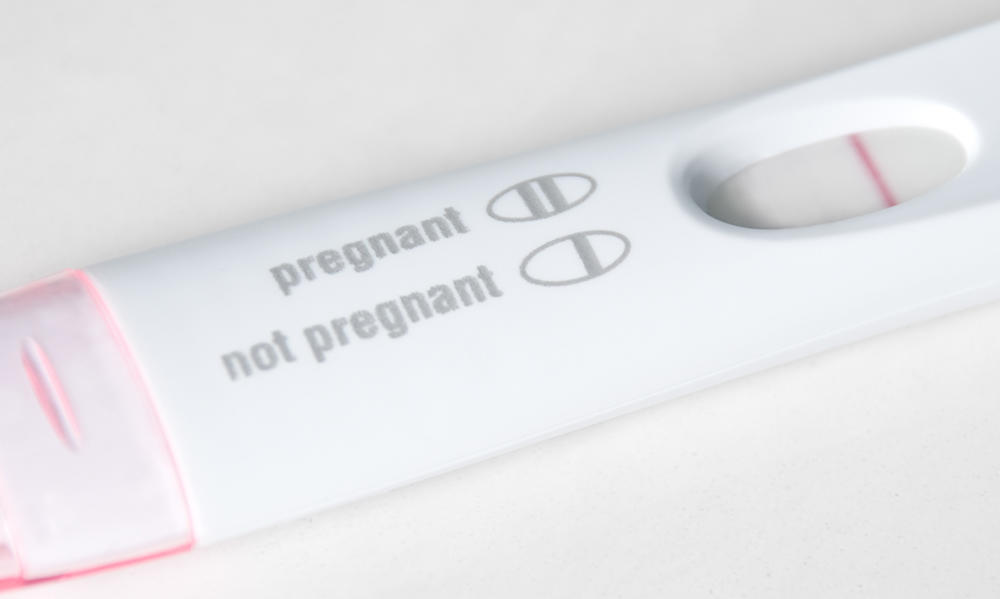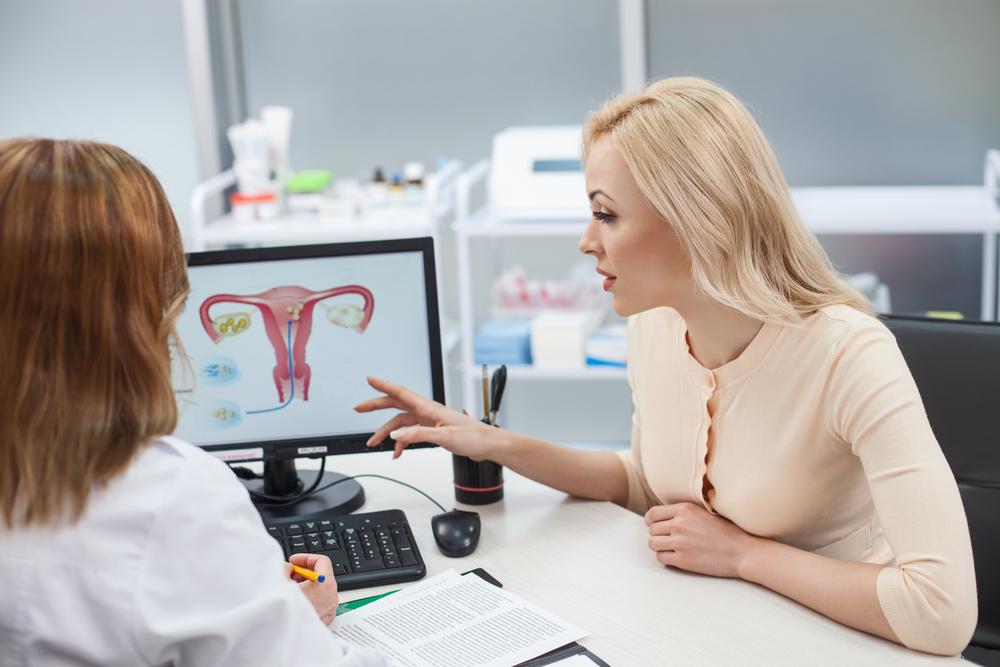In Russia, about 15% of married couples are considered infertile. If conception does not occur after a year of regular attempts (that is, sex without the use of contraception), then a woman and a man need to see a doctor to establish the reasons, start treatment and conceive a healthy child. Some couples simply choose the “wrong” time, while others face serious health problems.
Signs and symptoms of infertility in girls in some cases can be determined even before entering adolescence, but, as a rule, this seems possible only after the establishment of the menstrual cycle. Gynecologists in general are greatly worried by the trend of the appearance of gynecological diseases at an early age. Conclusion: for a daughter to become a mother, one must pay attention to the general health of the girl from birth.

Types of Female Infertility
Infertility in girls can be primary or secondary. When problems with the reproductive system, young girls are diagnosed with primary infertility, and those who have already become mothers but have encountered difficulties in conceiving a second baby are diagnosed with secondary infertility. Infertility can be absolute or relative. Absolute does not imply restoration of fertility (absence of the uterus or ovaries), relative requires appropriate treatment.
The classification of the causes of infertility in girls distinguishes idiopathic, tubal, immune, psychological, hormonal and other types. Immunological in most cases is associated with previous chronic infections of the genital tract. Tubal arises due to obstruction of the fallopian tubes. The violation is asymptomatic and usually does not cause any inconvenience to the patient, so it can go unnoticed for a long time.
Endocrine infertility occurs due to dysfunction of the adrenal gland, pituitary gland, ovary, or thyroid gland. If the necessary hormones in sufficient quantities and at a certain time are not produced, then there is a failure in the maturation of the eggs. Usually such infertility is temporary. To successfully conceive a child, you need to normalize the hormonal background. Uterine infertility is a consequence of diseases: malformations of the uterus, abnormalities in the location of organs, fibroids, and pathologies of the cervix.

Both men and women can be diagnosed with genetic infertility, which is impossible to suspect in adolescence. Doctors begin to suspect genetic infertility with miscarriage in two or more cases. This may be due to genetic mutations of the genes, in addition, some medications, smoking and other bad habits, ionizing radiation can trigger an adverse reaction. If you suspect, you need to consult a geneticist. It is also recommended for all women who plan a pregnancy over the age of 35 years.
Psychological infertility occurs in cases not related to physiological problems. At least a third of couples cannot conceive a child precisely because of stress, fear of responsibility or future birth, fear of losing attractiveness for a spouse or conceiving a child up to a certain age. At the same time, work with a psychologist is recommended. Help is usually needed not only by a woman, but also by a man.
In what cases is a diagnosis
A disappointing diagnosis is made by women who cannot conceive a child after a year of regular attempts. At the same time, there may be no signs of infertility in a girl. And the term of twelve months is completely conditional. The older the woman, the longer it will take for her to become pregnant. At the same time, problems with conception are not always due to malfunctions of the female body. Sometimes the reason lies in impaired reproductive health of men.

Infertility symptoms
Symptoms of infertility in girls clearly indicate the presence of health problems. Be sure to consult a specialist (even if you are not planning a pregnancy in the near future) if there is no menstruation or a long cycle, problems with the nervous system, hormonal disorders, the presence of sexually transmitted diseases, miscarriages. The presence of concomitant chronic diseases may be a symptom of infertility.
Some violations cannot be determined without diagnosis. For example, many ovarian pathologies and diseases of the reproductive system are asymptomatic, the same applies to obstruction of the fallopian tubes, chromosomal abnormalities in the eggs, ovarian exhaustion, adhesions, and the like. It is important to remember that for reproductive health you need general health. Therefore, you should pay attention not only to gynecological problems, but to treat all associated pathologies.
Baby Risk Factors
Some types of infertility can be identified long before the girl becomes a girl. Reproductive health depends on the general, so sometimes the reasons for the failures of young women planning a pregnancy, you need to look in childhood. Frequent diseases and dysbiosis can disrupt the normal microflora of the girl’s vagina, and low body weight and lack of subcutaneous fat will not allow the body to reserve in order to continue to bear the child.

In childhood, during the medical examination (if the mother does not neglect visits to the pediatric gynecologist with the child), one can detect the absence of fallopian tubes, pathologies of the location of the reproductive organs and the like of anatomical nature. Depletion of the ovarian reserve may be due to rubella or flu.
The daughter’s reproductive health is also affected by her mother’s health, illnesses transferred during pregnancy, and bad habits. And after many years, when a young woman will encounter unsuccessful attempts to conceive a child, no one will remember that her mother suffered a severe flu in the early stages of gestation.
Signs in adolescence
Signs of infertility in a girl in her teens can be suspected of several violations. There is a high probability of occurrence of problems with conception at an older age, if the first menstruation occurs at 16 years or later, the menstrual cycle is irregular or lasts more than fifty days. A disappointing diagnosis can be made for those girls who do not have abundant menstrual flow or a pronounced premenstrual syndrome.
Disorders of the menstrual cycle can have a different nature, often they are associated with functional thyroid insufficiency or inflammatory diseases of the genital organs. In adolescence, sexually transmitted diseases can occur. The reasons are inadequate sex education and lack of awareness among adolescents. The average age for sexual intercourse is 14-15 years. However, few girls turn to doctors, think about contraception, have sex with a regular partner, or care about the safety of intimate relationships.

A common cause of infertility, which dates back to adolescence, is weight loss or the presence of extra pounds. Girls who seek to lose weight, due to inexperience and youth, resort to methods that cause cycle failures. It causes irreparable harm to the body. With a decrease in adipose tissue volume of less than 30%, ovarian function is disrupted. If there is too much adipose tissue, this leads to a cystic change in the organs of the reproductive system, inferiority of ovulation and menstrual irregularities.
Hormonal imbalance
In adolescence, some girls may experience unpleasant changes in appearance. Often this is due to hormonal imbalance. Symptoms of excessive production of male sex hormones include body hair growth, oily skin, and acne. A sign of infertility in a girl may be polycystic ovary or the presence of adhesions. True, talking about hormonal failure in adolescents is quite difficult, because growing up in principle causes an imbalance.
Any phenomena that occur during this period can be considered normal until the contrary is proved. We can speak with confidence about violations in those cases if there is a pronounced delay in physical development (the absence of secondary sexual characteristics) or development according to the type of the opposite sex. Anxiety symptoms can be considered drowsiness and constant weakness, anemia, soreness of menstruation, dystonia, tachycardia.

Menstrual irregularities
How to understand that a girl has infertility? Only a doctor can accurately confirm the diagnosis based on the results of a comprehensive examination. However, indirect signs of infertility in girls can be considered too short or long menstrual cycles, too heavy or meager periods, severe pain, irregular periods, the presence of bleeding between critical days, the absence of menstruation for six months.
Intimate problems
Signs of infertility in girls are some chronic gynecological diseases or vaginal pathologies (dryness, infections). Chlamydia, for example, without treatment causes cicatricial damage to the fallopian tubes and inflammatory processes. Latent infection is one of the common causes of female infertility. In order not to encounter the unpleasant consequences of carelessness in sexual life, you need to use contraception, observe personal hygiene rules, have sex with a regular partner, and if there are disturbing symptoms, consult a doctor immediately.

Infertility Treatment Methods
Infertility treatment today is carried out by several methods. It all depends on the reasons. If it is not possible to conceive a child due to the presence of general or gynecological diseases, after the diagnosis, drug therapy is prescribed. Usually, after a course of treatment, it is possible to become pregnant. In some cases, only surgical treatment is possible. If nothing helps, but an anatomically woman can become pregnant (there are reproductive organs), then artificial insemination (IVF) is possible.